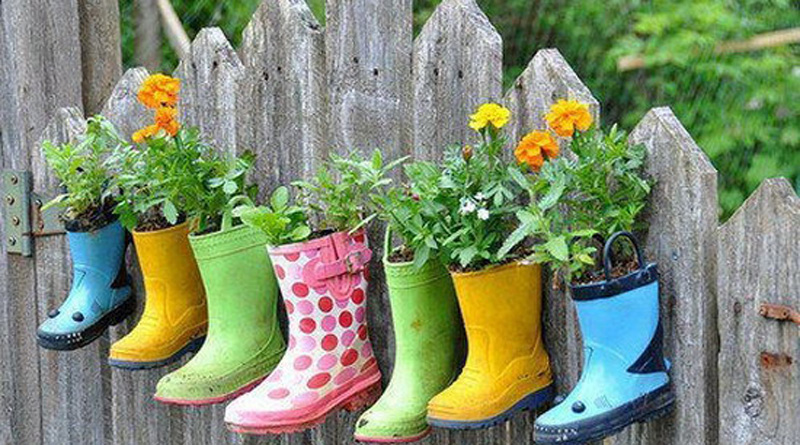REUSE means trying to use products more than just one time in their original form instead of throwing them away after each use. Reuse keeps new resources from being used for a while longer, and old resources from entering the waste stream.
In a series of 7 blogs, the 6 R’s of Sustainability (Review, Refuse, Reduce, Reuse, Recycle, and Rethink your Residue) are explained to give practical information about what we as a consumer can do to reduce our ecological footprint by applying these practices in our daily life.
4: REUSE
REUSE is the 4th R of Sustainability. The most effective way to reduce waste is to not create it in the first place. Making a new product requires a lot of materials and energy, raw materials must be extracted from the earth, and the product must be fabricated then transported to wherever it will be sold. As a result, reduction and reuse are the most effective ways you can save natural resources, protect the environment and save money.
Below are a few examples of how you can reuse items and products and therefore, reduce your waste:
- Buy used products instead of new ones. Often, used items are less expensive and just as good as new. And when you are done with it, see if you can sell them again, donate or give them away.
- Buy reusable products over disposable items. Look for items that can be reused; the little things can add up. For example, you can bring your own cutlery to work, rather than using disposable ones. Buy rechargeable batteries.
- Pass on magazines, catalogs, and books to neighbors, hospitals, libraries, schools, and nursing homes.
- Reuse plastic or glass containers for storage of food or other household items.
- Reuse shopping bags and cardboard boxes.
- Reuse wrapping paper and gift bags. Use paper you would otherwise throw away as wrappings for birthday presents.
Your waste is your responsibility
REVIEW your current waste, REFUSE what you don’t need, REDUCE what you do need, REUSE by using reusables, RECYCLE what you can’t refuse, reduce or reuse, and RETHINK your residue waste, so you can eliminate even more waste.
Next week’s blog will be about RECYCLE. Join us in a journey to take responsibility over your own waste! Read all blogs about the 6R’s here.


Recent Comments